Greenwich is a scenic, historic part of South East London well worth visiting. The unique architecture, designed landscape, and association with the British monarchy over the centuries are just some of the features which make Maritime Greenwich a unique and significant place. Inscribed on UNESCO’s World Heritage Site in 1997, Maritime Greenwich is famous for maritime history, being the home of Greenwich Mean Time, Cutty Sark, the National Maritime Museum, the Queen's House art gallery, and London’s only planetarium. They all are within walking distance of each other, so you can easily visit all sites in one day. Enjoy some amazing views of the London skyline from Greenwich Park. Here’s my picks for the best things to see in Greenwich. 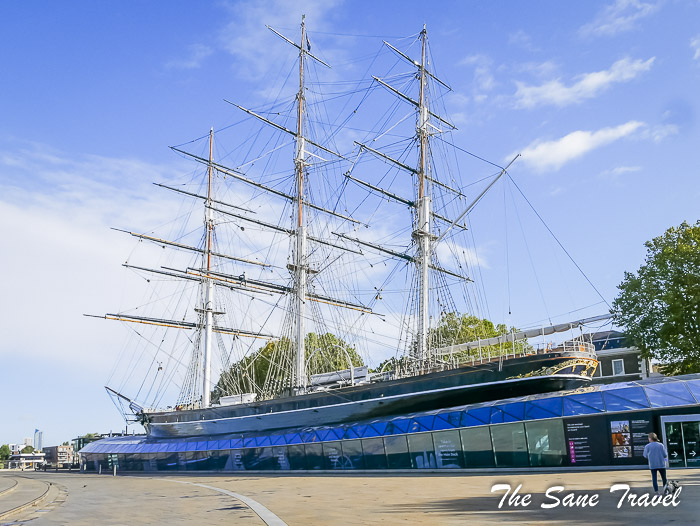
If you go to Maritime Greenwich by light rail, like me, then your first stop would very likely be the Cutty Sark ship.
Cutty Sark
The world’s only surviving tea clipper ship Cutty Sark was built in 1869 in Scotland to carry tea from China to Britain. Cutty Sark visited nearly every major port in the world and gained fame for its record-breaking passages. The name of the ship 'Cutty Sark' is an archaic Scottish name for a short nightdress. 'Cutty' means short or stumpy, while 'Sark' means nightdress or shirt. Cutty Sark served as a working ship for fifty-two years, a training ship for twenty-two years, and has been open to visitors in Maritime Greenwich for sixty years. 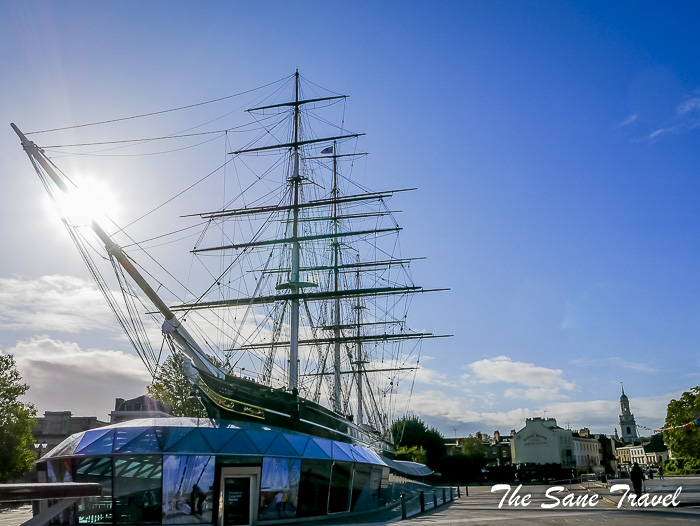
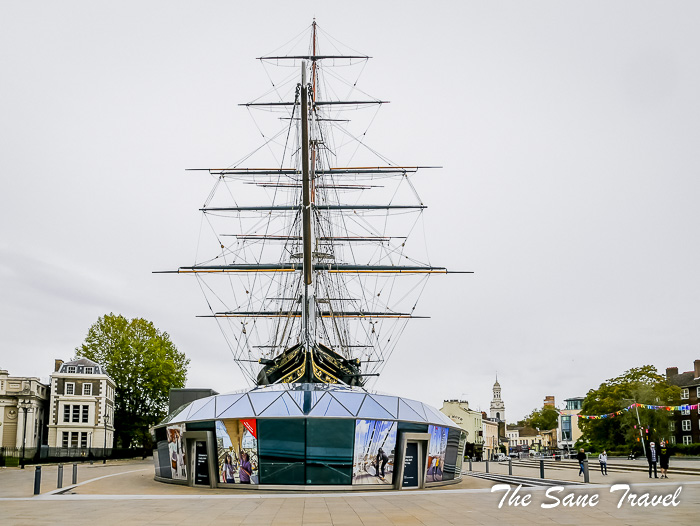
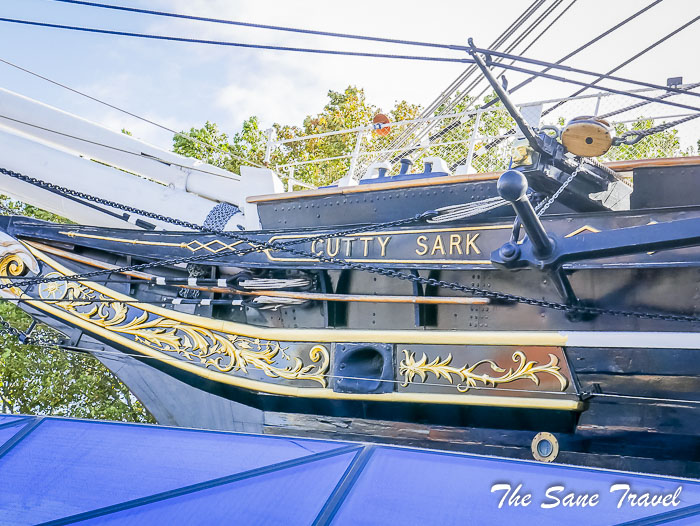 Visitors have the opportunity to explore the ship and enjoy relaxed afternoon tea in the ship cafe. It’s a great way to enhance your experience underneath the ship which once brought tea to Britain. Cutty Sark is part of Royal Museums Greenwich which includes the Royal Observatory, the National Maritime Museum, and the Queen's House.
Visitors have the opportunity to explore the ship and enjoy relaxed afternoon tea in the ship cafe. It’s a great way to enhance your experience underneath the ship which once brought tea to Britain. Cutty Sark is part of Royal Museums Greenwich which includes the Royal Observatory, the National Maritime Museum, and the Queen's House.
After visiting the ship, head to the Painted Hall located in the Old Royal Naval College.
Painted Hall
The Painted Hall, a Baroque masterpiece also known as Britain's 'Sistine Chapel', boasts one of the most spectacular Baroque interiors in Europe. The incredible ceiling and wall decorations were made by British artist, Sir James Thornhill. It took him 19 years to get the job done. This grandeur composition covers more than 3,700 square meters. Sir James Thornhill painted around 200 figures to tell us the story of Britain’s political change, scientific and cultural achievements, naval endeavours, and commercial enterprise. Surprisingly, it was originally intended as a grand dining room for the naval pensioners, but soon it became a ceremonial space and place for special functions.
In 2019, after finishing 8.5 million pounds worth of restoration works of paintings, the Painted Hall was brought vividly back to life and opened to the public.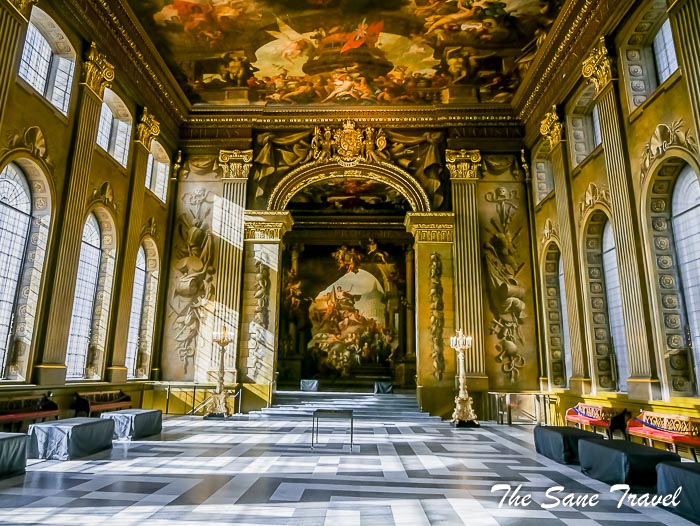
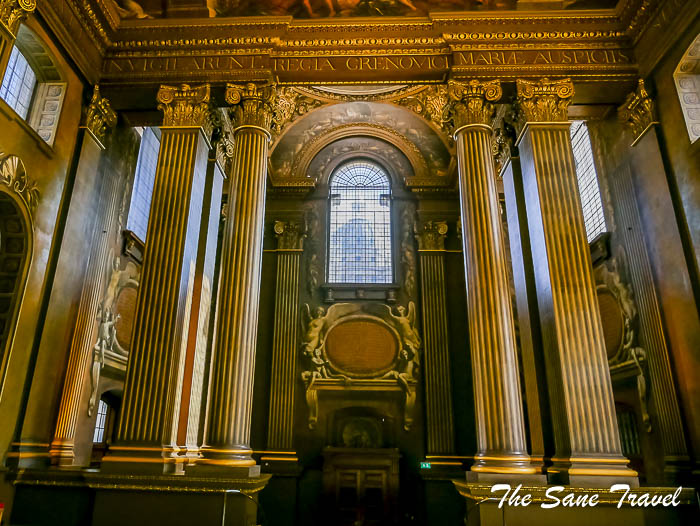
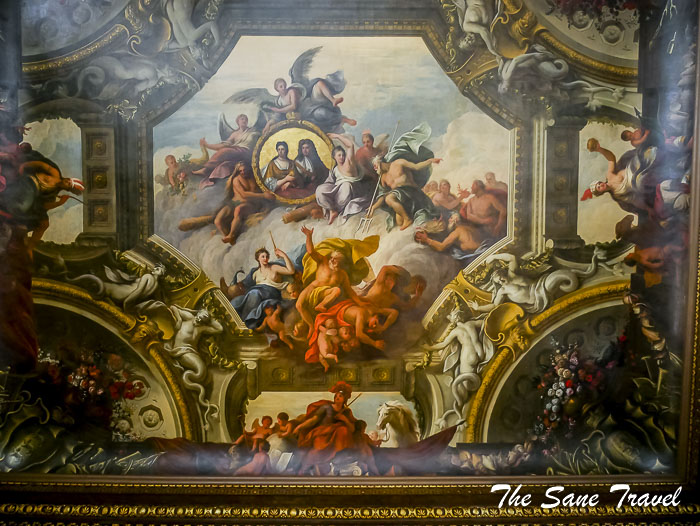
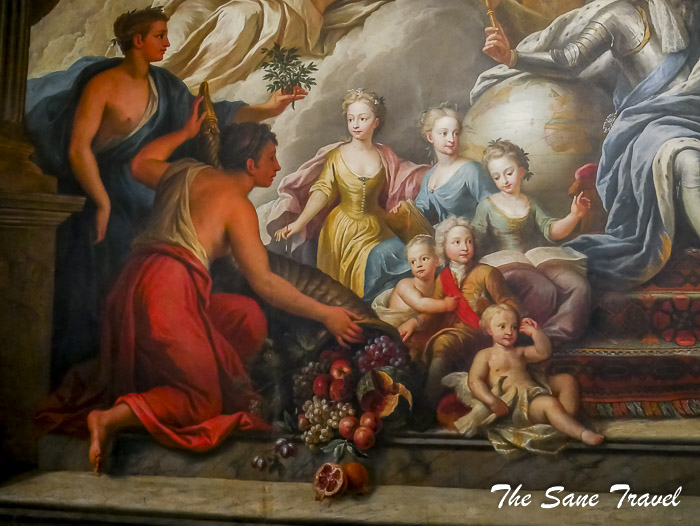
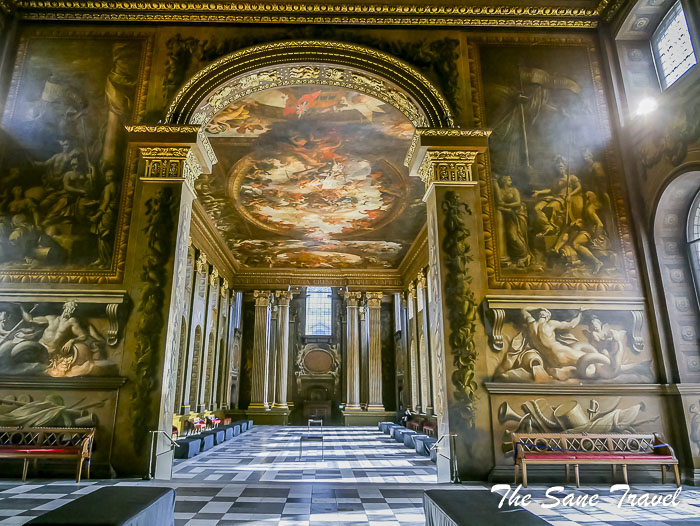
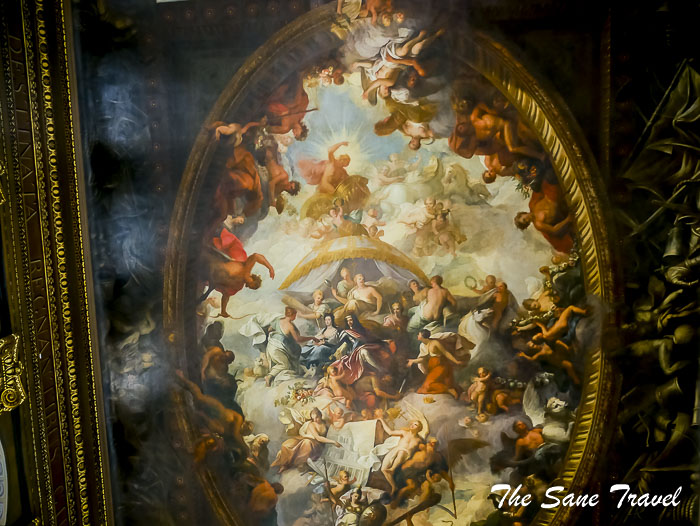
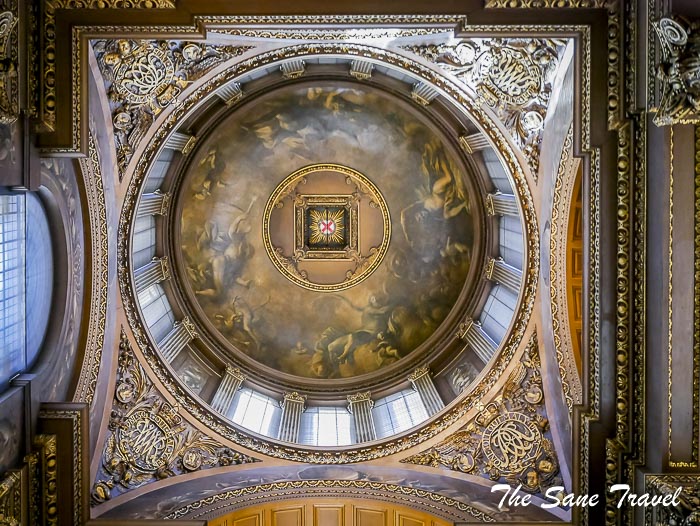
Afterwards take your time to explore the National Maritime Museum.
National Maritime Museum
Since Britain has such a vast maritime history, it’s often associated with British culture and identity. The National Maritime Museum is a place where to explore it in depth. The area of Greenwich where the museum stands today was once a critical location for Britain’s maritime history, as it connected the city to London’s docks via the River Thames. Today the National Maritime Museum, opened in 1937, is the largest museum of its kind in the world. 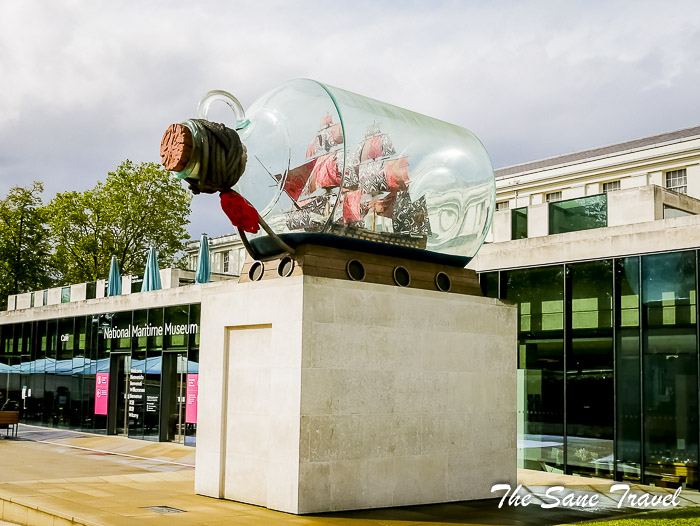
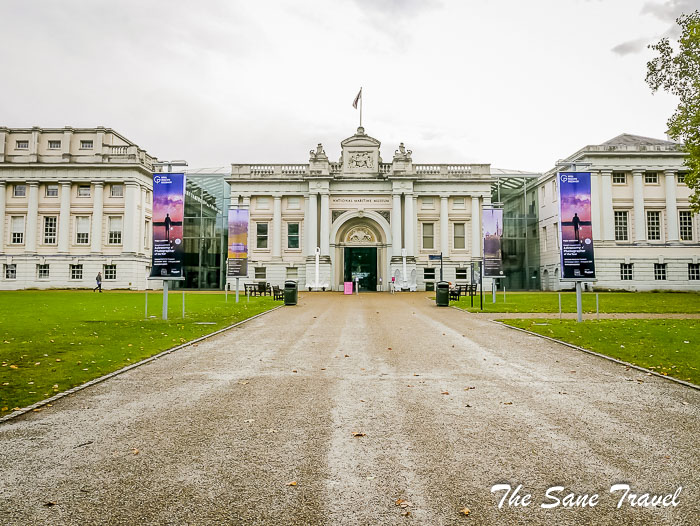 The Museum has the most important holdings on the history of Britain at sea, including maritime art, cartography, manuscripts, ship models and plans, scientific and navigational instruments, time-keeping and astronomy, and so forth.
The Museum has the most important holdings on the history of Britain at sea, including maritime art, cartography, manuscripts, ship models and plans, scientific and navigational instruments, time-keeping and astronomy, and so forth. 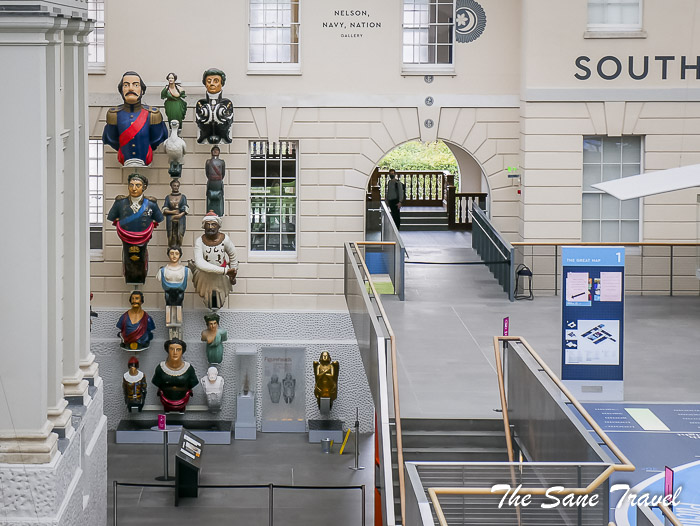
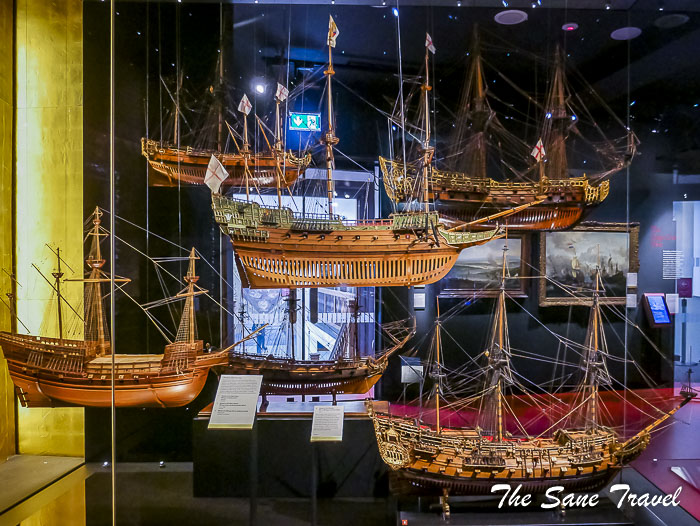 There are exhibits dedicated to some of the most famous names and events in Britain’s naval history, such as Captain James Cook, Admiral Horatio Nelson, and the Battle of Trafalgar.
There are exhibits dedicated to some of the most famous names and events in Britain’s naval history, such as Captain James Cook, Admiral Horatio Nelson, and the Battle of Trafalgar. 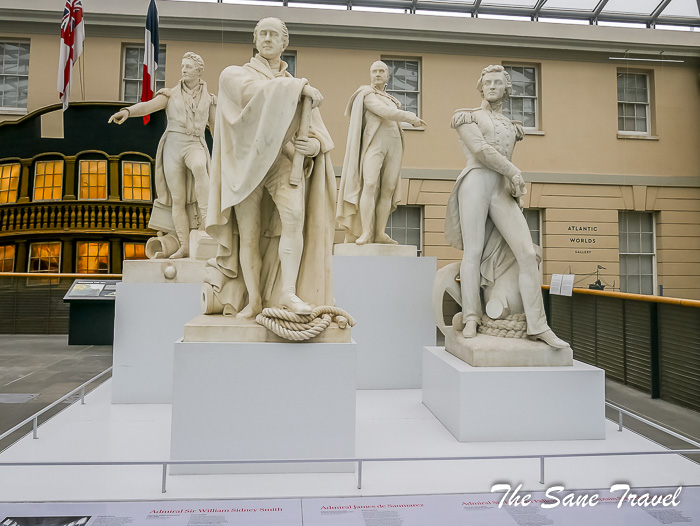 The National Maritime Museum appeals to visitors of all ages, with many exhibits designed for younger visitors.
The National Maritime Museum appeals to visitors of all ages, with many exhibits designed for younger visitors.
Be sure to check out the Great Map at the centre of the museum where children and adults can walk across the map’s surface, and use a tablet with a touch-screen to learn more about naval topics.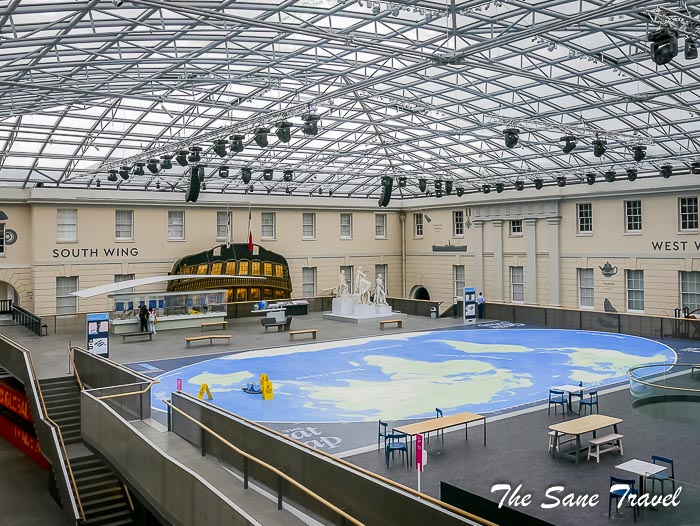 Now it’s time to visit nearby Queen’s House.
Now it’s time to visit nearby Queen’s House.
Queen’s House
Commissioned in the early 17th century by Anne of Denmark, wife of James I, the Queen's House is the first purely classical building in Britain and represents a turning point in English architecture serving as the inspiration for classical houses and villas all over the country in the two centuries after it was built.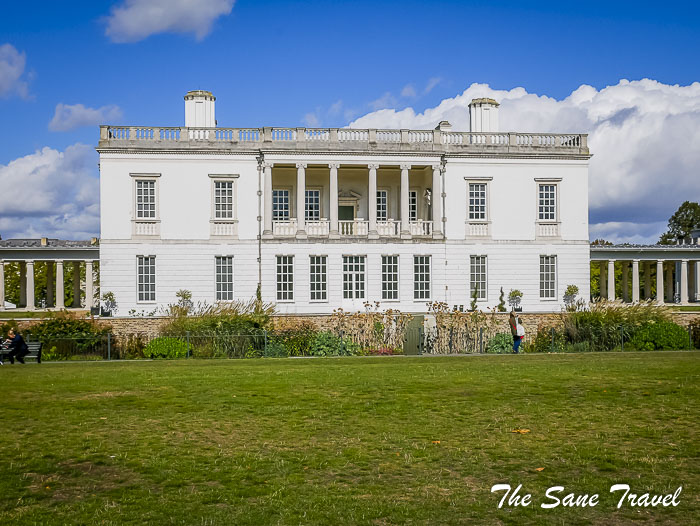
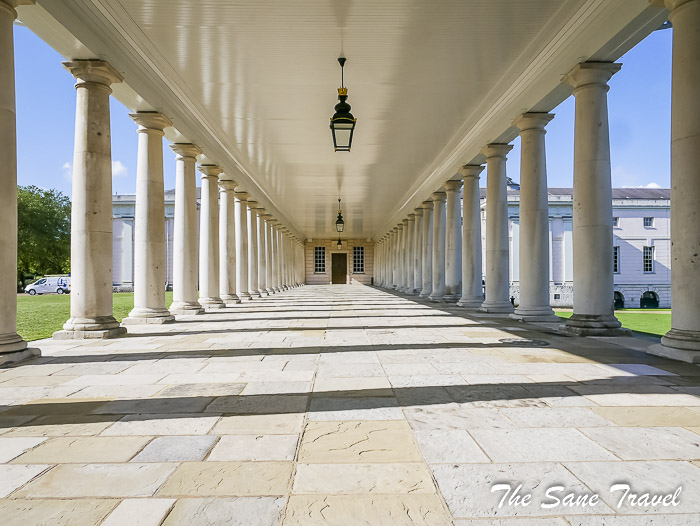 Part of the National Maritime Museum, the House now serves as the principal showcase for the Museum's outstanding art collection, which includes world-class marine paintings and the largest national collection of British portraits outside the National Portrait Gallery.
Part of the National Maritime Museum, the House now serves as the principal showcase for the Museum's outstanding art collection, which includes world-class marine paintings and the largest national collection of British portraits outside the National Portrait Gallery.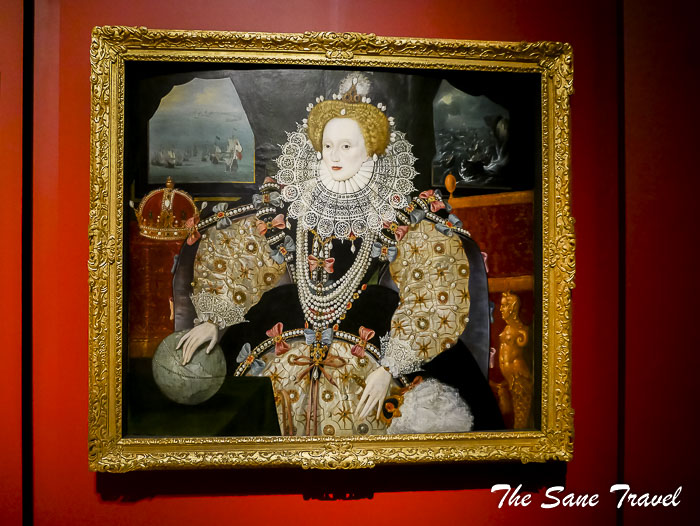
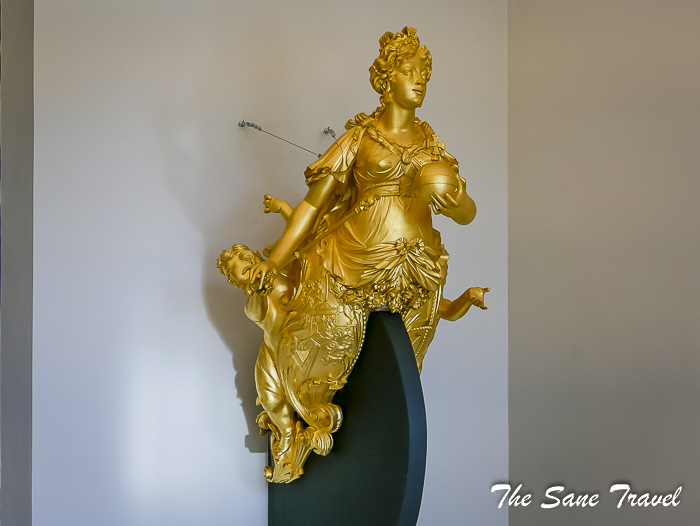
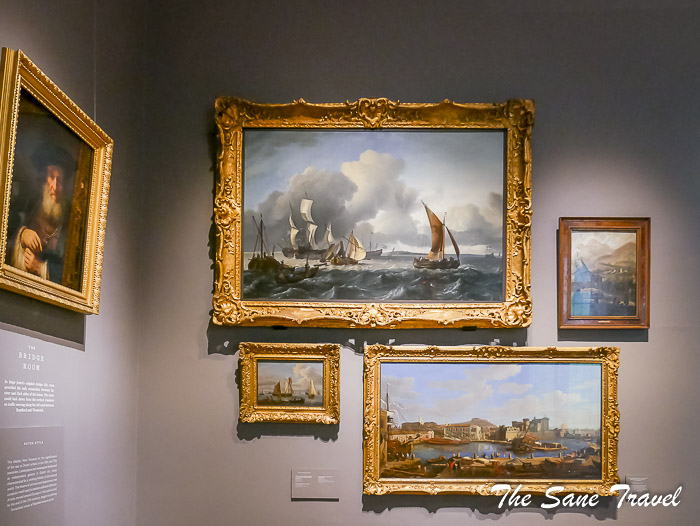
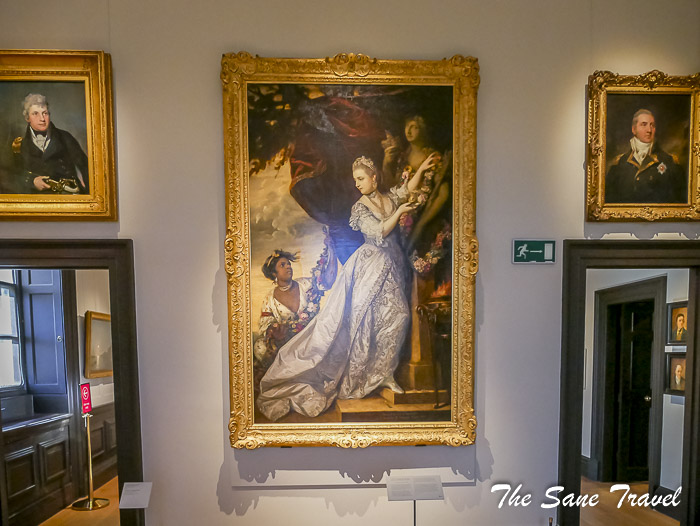
To be honest, the main reason why I went there was to see the Tulip Staircase of this building. The ornate wrought iron Tulip Staircase is thought to be the oldest unsupported spiral staircase in the UK. 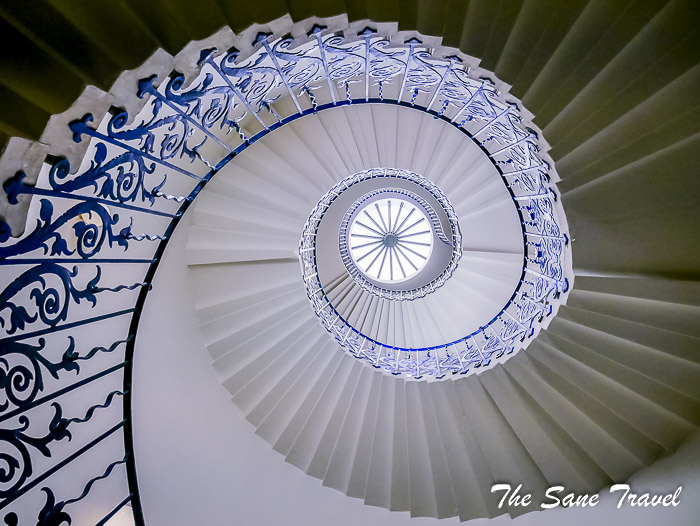 The stairs are held in place by the support of a cantilever from the wall with each stair supporting one another. A major restoration and refurbishment of the Queen’s House was finished in 2016, including restoration of the staircase to demonstrate its full beauty.
The stairs are held in place by the support of a cantilever from the wall with each stair supporting one another. A major restoration and refurbishment of the Queen’s House was finished in 2016, including restoration of the staircase to demonstrate its full beauty.
Don’t forget to explore a beautiful Greenwich Park to get up to the hilltop for stunning city views and also visit the Royal Observatory and the Meridian Line.
Greenwich Park
In the early 1600s, the park was laid out in the French style with many trees planted, some of which remain today. Greenwich Park covers 73 hectares (183 acres) and is the oldest enclosed Royal Park. It is situated on a hilltop with impressive views across the River Thames to the Docklands and the City of London, between Blackheath and the River Thames. The Royal Park is a masterpiece of the application of symmetrical landscape design to irregular terrain by André Le Nôtre.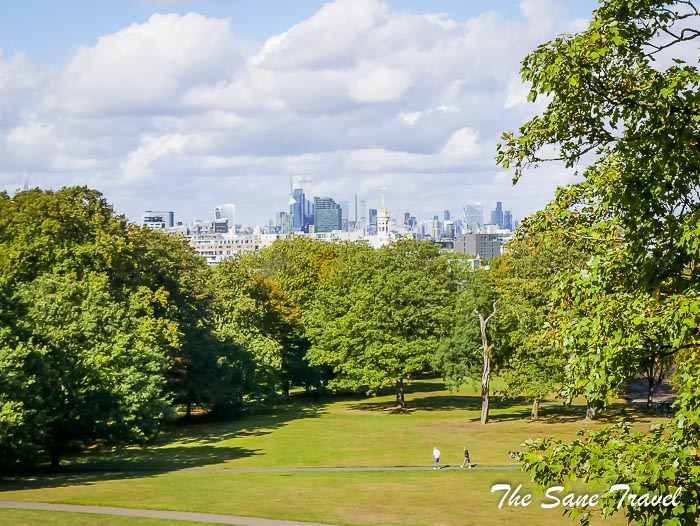 Best views of the London skyline is from the observation platform next to the Royal Observatory.
Best views of the London skyline is from the observation platform next to the Royal Observatory.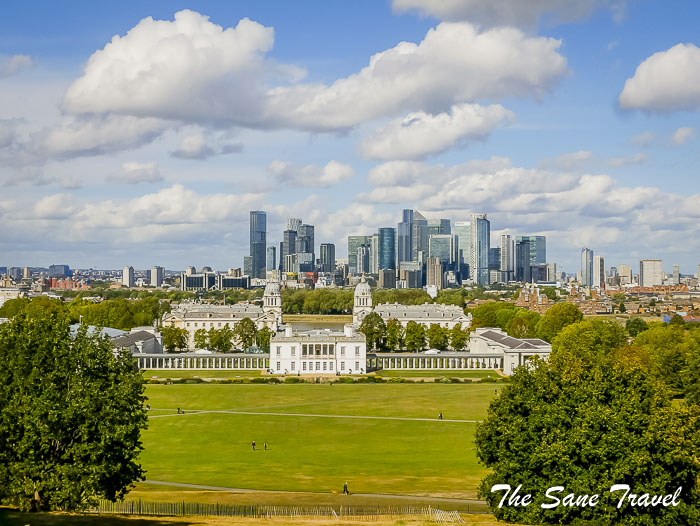
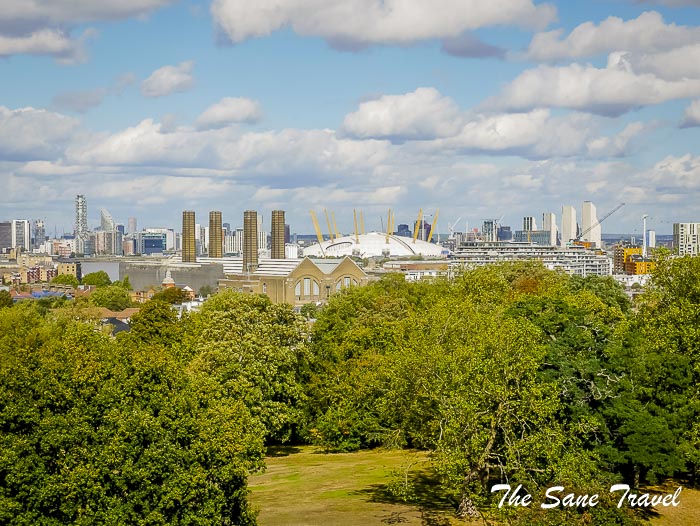
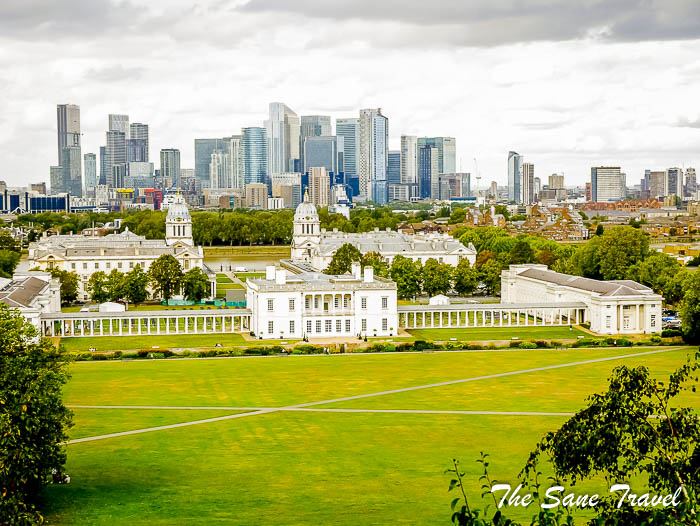
Royal Observatory and Meridian Line
The Royal Observatory is managed as part of the National Maritime Museum and contains the Astronomy Centre, Flamsteed House, and the Meridian Courtyard as well as the Peter Harrison Planetarium. In 1675, King Charles II commissioned building of the Royal Observatory. 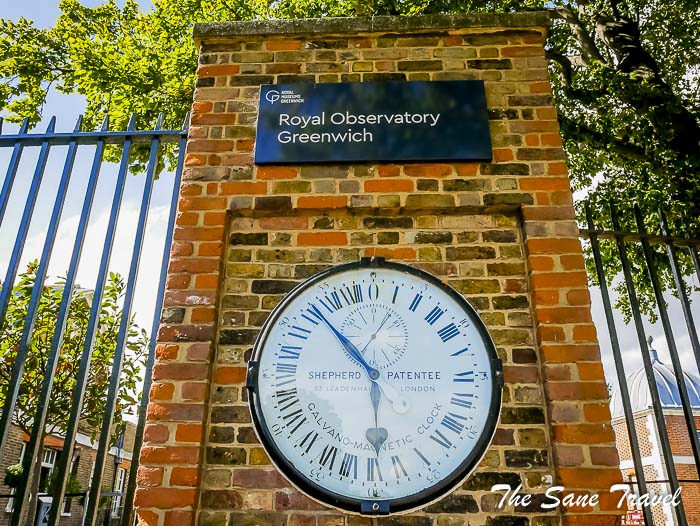
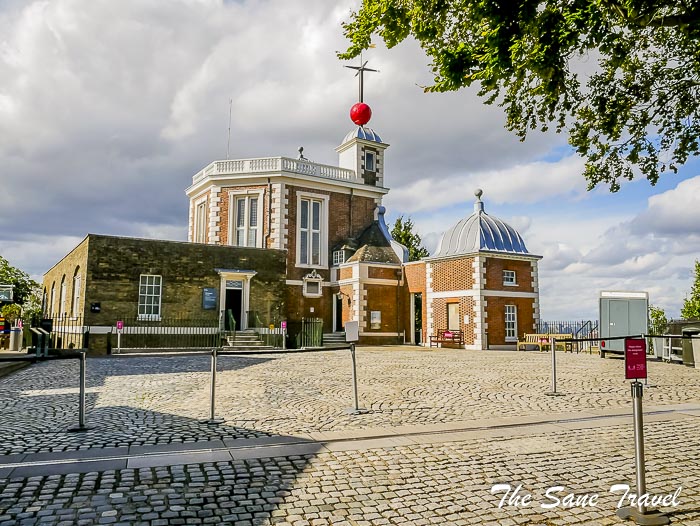
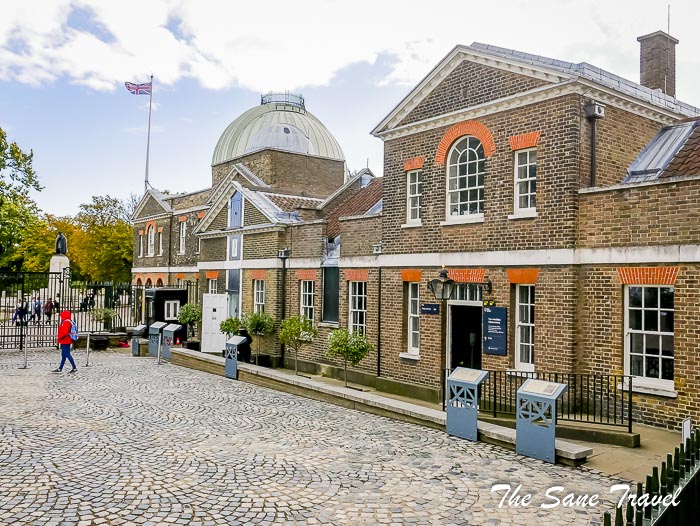 The Royal Observatory’s astronomical work, particularly of the scientist Robert Hooke, and John Flamsteed, the first Astronomer Royal, permitted the accurate measurement of the earth’s movement and contributed to the development of global navigation. The Observatory is now the base-line for the world’s time zone system and for the measurement of longitude around the globe. The Greenwich Meridian was chosen as the Prime Meridian of the World in 1884. The Meridian Line, or Prime Meridian, separates the eastern and western hemispheres just like the Equator separates the northern and southern.
The Royal Observatory’s astronomical work, particularly of the scientist Robert Hooke, and John Flamsteed, the first Astronomer Royal, permitted the accurate measurement of the earth’s movement and contributed to the development of global navigation. The Observatory is now the base-line for the world’s time zone system and for the measurement of longitude around the globe. The Greenwich Meridian was chosen as the Prime Meridian of the World in 1884. The Meridian Line, or Prime Meridian, separates the eastern and western hemispheres just like the Equator separates the northern and southern. 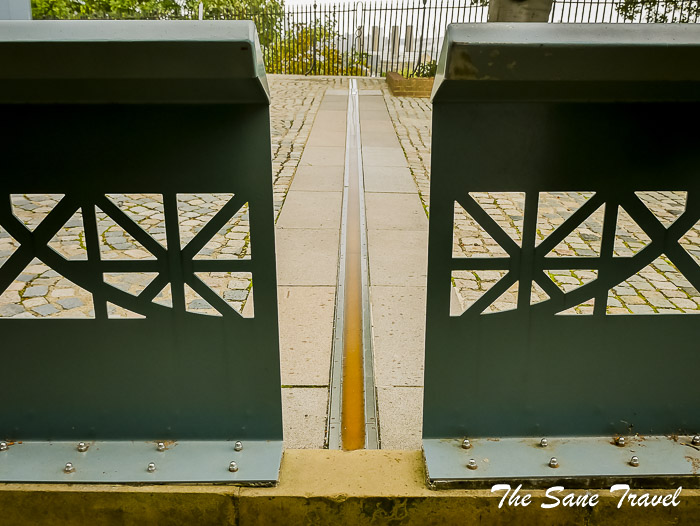 The last stop on your Maritime Greenwich tour is Ranger’s House, just a short walk away from the Observatory.
The last stop on your Maritime Greenwich tour is Ranger’s House, just a short walk away from the Observatory.
Ranger’s House
With the delights of Greenwich Park on its doorstep, Ranger's House makes an ideal addition to a memorable day out. Built in 1723, Ranger’s House is an elegant redbrick Georgian villa on the edge of Greenwich Park with the Meridian Line passing through its grounds. Ranger’s House got its name from Rangers of Greenwich Park, an honorary position granted by the monarch. This title came with a residence. The first Ranger to live at the present Ranger’s House was Princess Sophia Matilda, niece of George III, in the early 19th century. The last Ranger to occupy Ranger’s House was Field-Marshal Lord Wolseley who lived there until the end of the 19th century. In 1902, the London County Council bought Ranger’s. In 1986, the House passed from the Greater London Council into the care of English Heritage.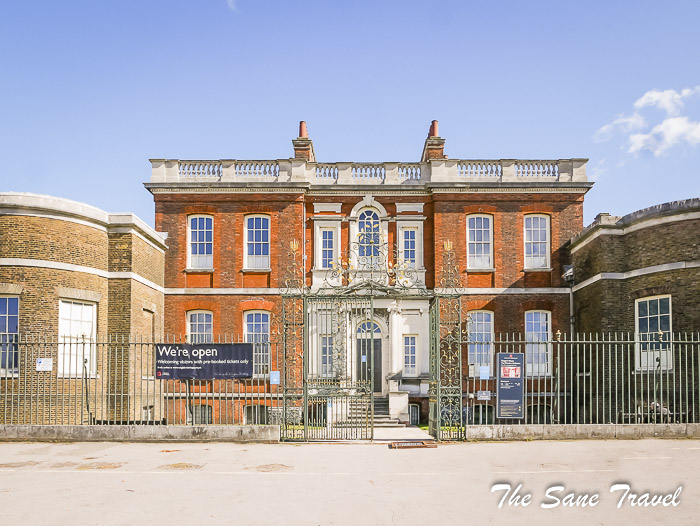
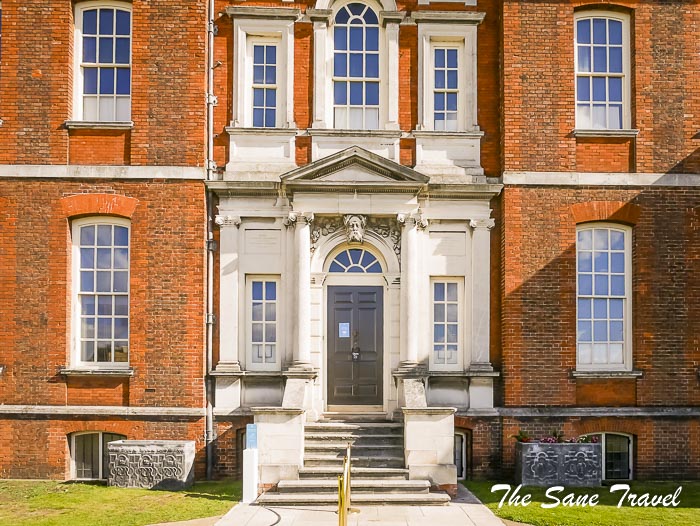
Nowadays building houses The Wernher Collection, a world-class art collection amassed by the 19th-century businessman, Sir Julius Wernher. A German-born businessman, Wernher made a fortune from dealing in South African gold and diamonds at the turn of the 20th century. This enabled him to buy many outstanding artworks. Nearly 700 works of art are on display, including early religious paintings and pieces from the Dutch Old Masters, tiny carved Gothic ivories, fine Renaissance bronzes, and silver treasures revealing the genius of medieval craftsmen and the unparalleled quality of Renaissance decorative arts. 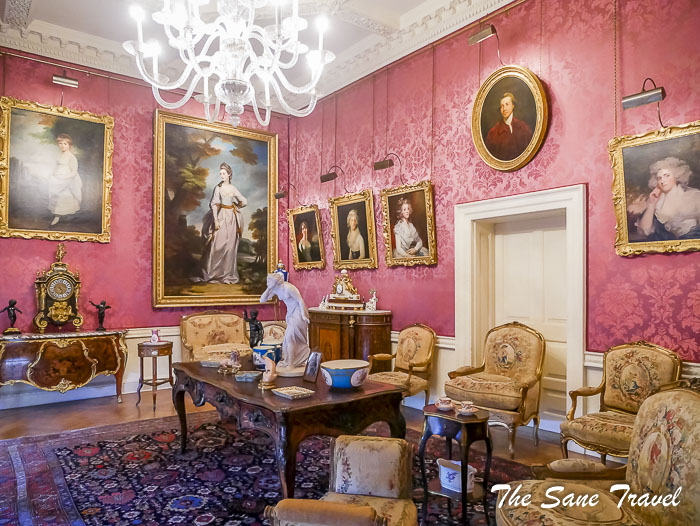 Do not miss the awesome rose garden behind Ranger’s House.
Do not miss the awesome rose garden behind Ranger’s House.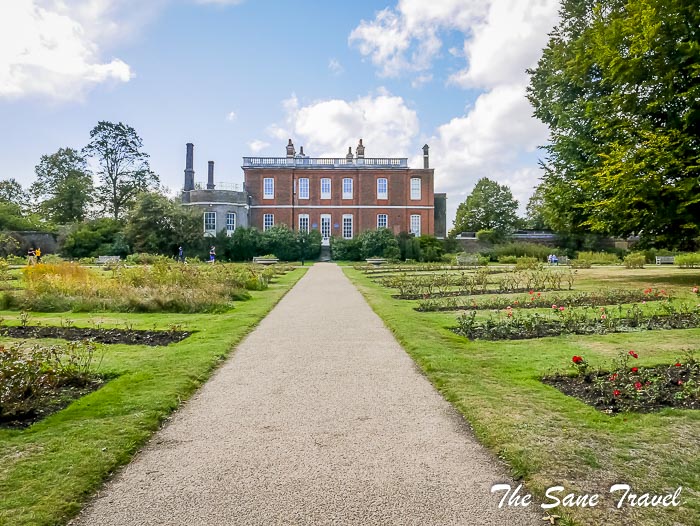
Practical information
The Royal Maritime Museum, the Queen’s House, and Greenwich Park are free of charge. Other places have an entrance fee. Check their websites for further information.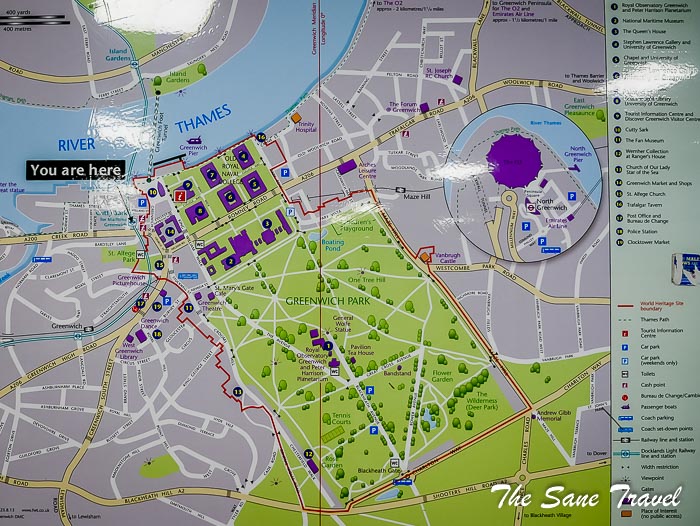 In any case, I advise you to buy tickets online and secure your visiting time this way. There are many eating places around Greenwich, including a Museum café, so the choice is yours.
In any case, I advise you to buy tickets online and secure your visiting time this way. There are many eating places around Greenwich, including a Museum café, so the choice is yours.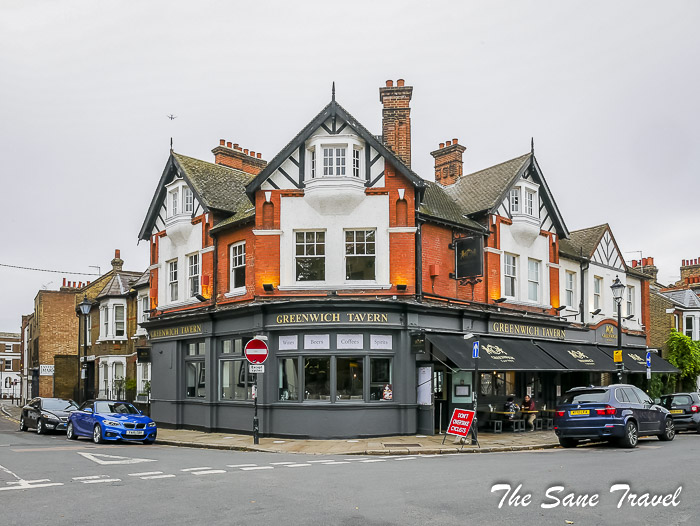
Here is a map of my Maritime Greenwich tour.
What did you think? Have you been to Greenwich? Or perhaps you’re thinking of visiting in the near future? Either way, I’d love to hear from you so please add your comments below.
Like it? Pin it!
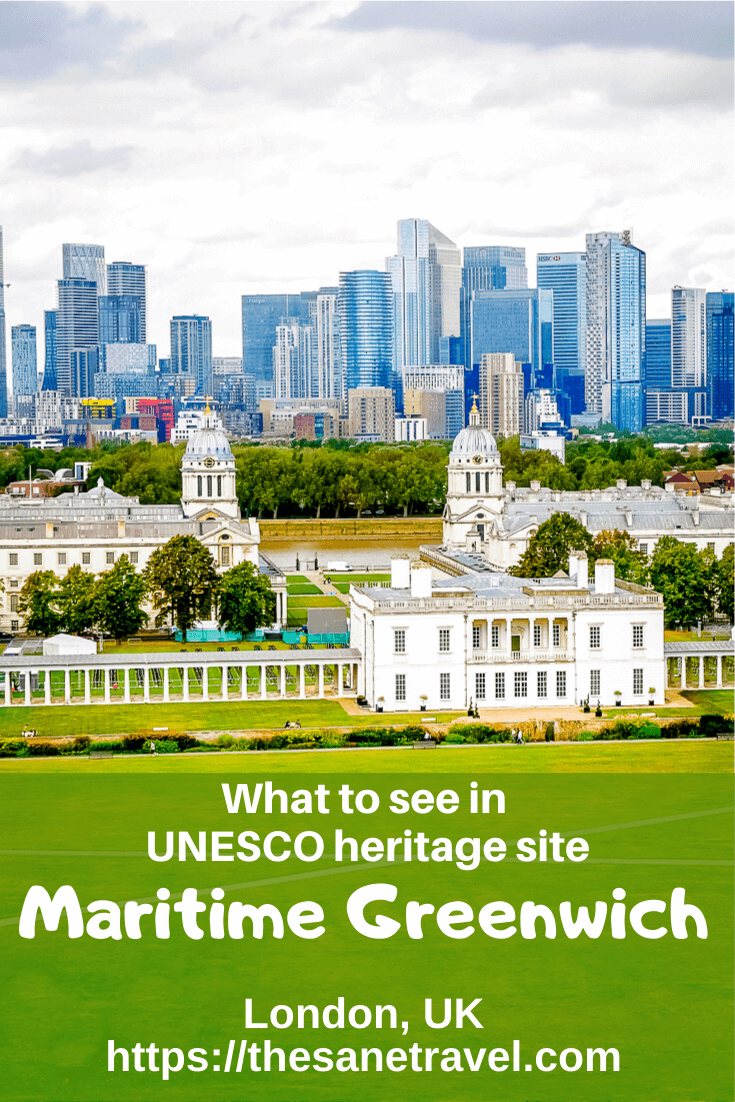
Author: Anita Sane

About the author
Anita is a part-time traveller, passionate photographer and a retired career woman from Latvia, travelling mostly solo for more than 15 years. She is a skilled travel planner who plans and executes her travels by herself. Anita wants to show you how to travel the world and open your mind to new experiences. Follow her on Facebook, Instagram, Pinterest, Twitter and Bloglovin.

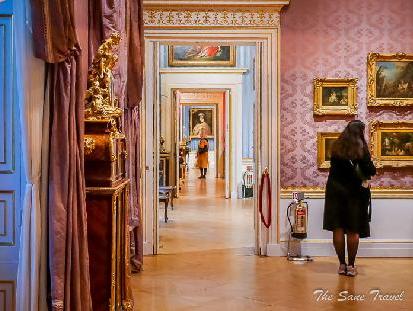
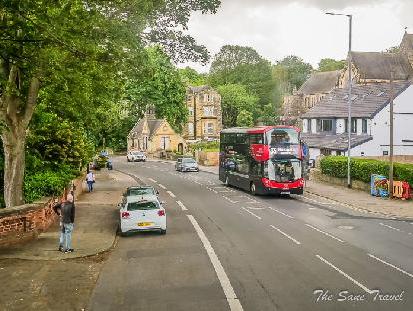
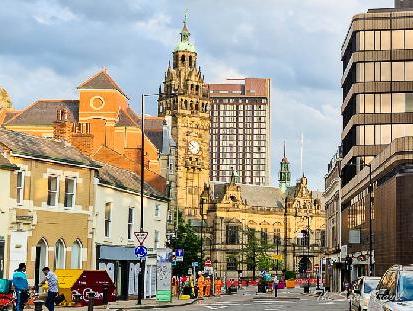
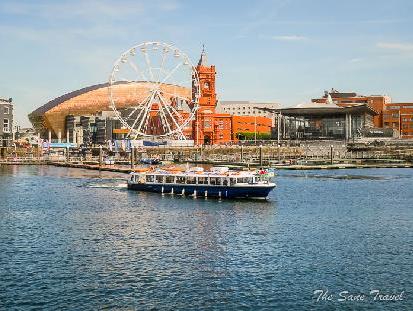
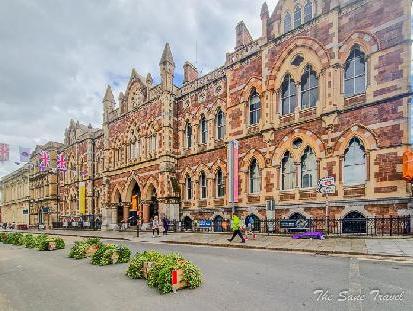
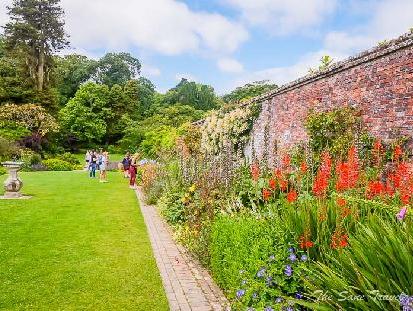

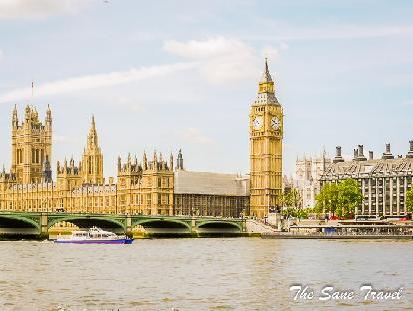
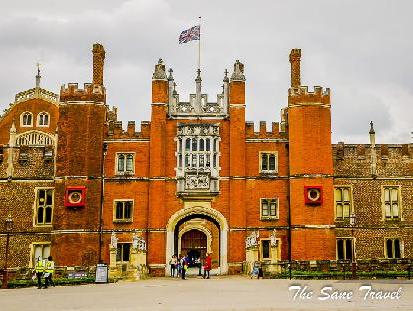
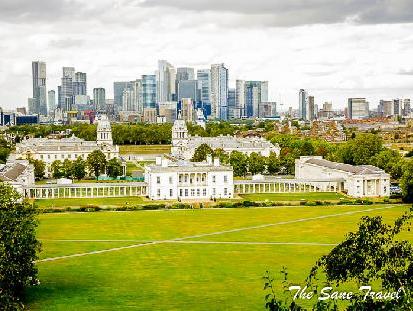
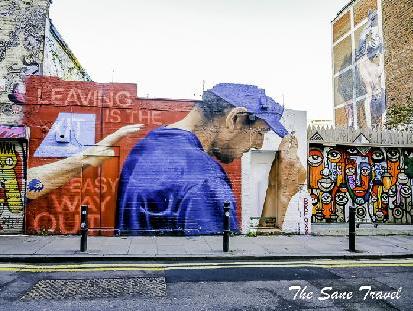
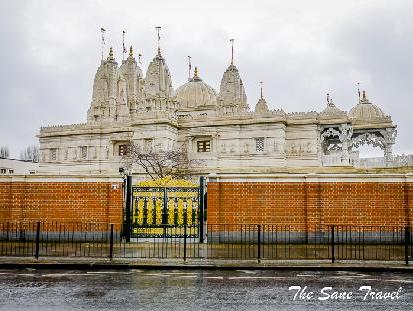
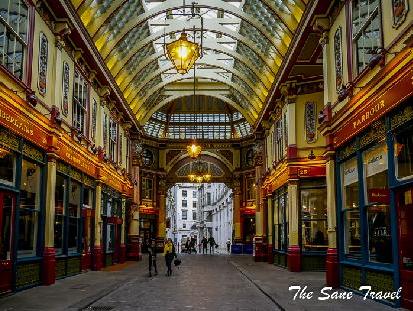
Report
My comments